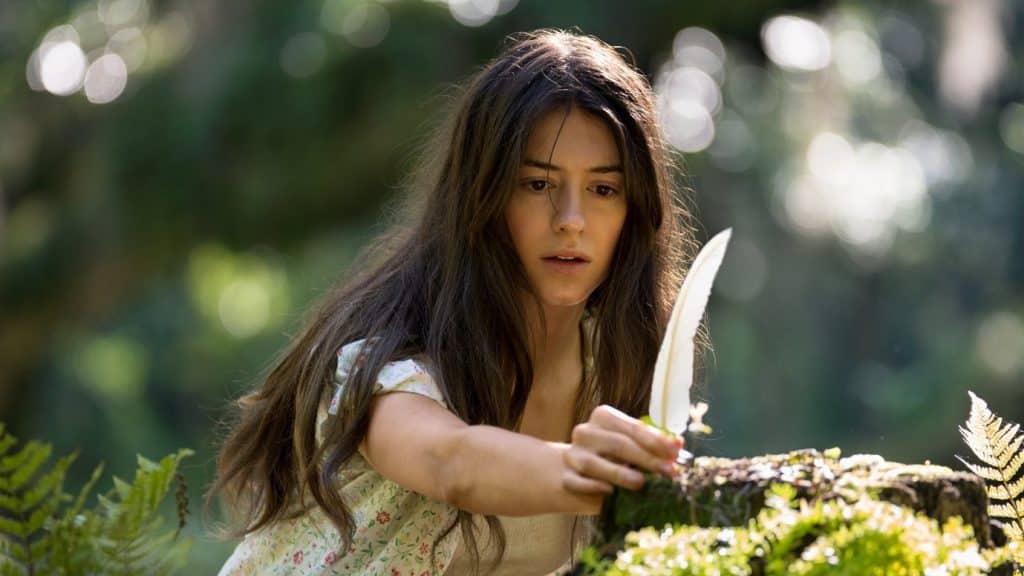
By Wendy Knowlton
10 August 2022
The stand-out stars of Where the Crawdads Sing are the landscape and the cinematography. Shafts of greenish light penetrate the gaps between trees festooned with Spanish moss and a labyrinth of watery channels divides the mysterious marshes where abundant life does what it needs to do to survive. When the seemingly idyllic setting is disturbed by the discovery of a body at the foot of a fire observation tower, suspicion quickly falls on “the Marsh girl” Kya (Daisy Edgar-Jones), who has been living there alone since she was ten years old.
The body belongs to Chase Andrews (Harris Dickson), an entitled womaniser who enticed Kya into a relationship with false promises, and then abandoned her, just as her whole family had done before, leaving one by one. This, and a few scant pieces of potential evidence are enough for the town to condemn the girl. The girl they humiliated on her only day of school as a child and left in illiterate isolation and poverty after she evaded the forays of truant officers and social services.
Despite its loyalty to Delia Owen’s bestseller, and its beauty, this film doesn’t quite manage to capture the power and fascination of the marsh in the way the immersive novel does. Kya’s obsession with her environment and her meticulous observation and recording of the natural world around her is key to who she is and what she does. Her abusive father, and the local boys who view her as a trophy to acquire, have taught Kya to be suspicious of men. Nature has become the mother she lost, and her prime teacher. So, a murder charge against a girl used to observing female grasshoppers bite off the heads of their mates, or fireflies luring others to their deaths, carries a significance it would lack when directed elsewhere.
Edgar-Jones is a passionate, damaged and sympathetic Kya. Taylor John Smith is a warm contrast to the repellent Chase, playing Tate the sensitive friend who teaches Kya to read and shares her love for the marsh. Kya’s few supporters, local couple Jumpin’ (Sterling Macer Jr.) and Mabel (Michael Hyatt) bring love and hope to Kya’s history of trauma.
Much of the film’s publicity claims it is a story of empowerment, and Kya’s resilience is impressive, but the story is more a tale of desperate loneliness. Kya’s lawyer Tom (David Strathairn) asks whether Kya was rejected because she was different, or different because she was rejected. Many want to pin the crime on her because it would be convenient to believe an outsider rather than one of their own was capable of such a deed. Kya’s guilt or innocence is kept ambiguous until the end, but it is disturbingly clear that Chase’s death was a premediated, carefully planned act. Lurking beneath the waters of the marsh is the question of who, in the end, is predator and who is prey.
For more faith news, follow The Melbourne Anglican on Facebook, Twitter, or subscribe to our weekly emails.






